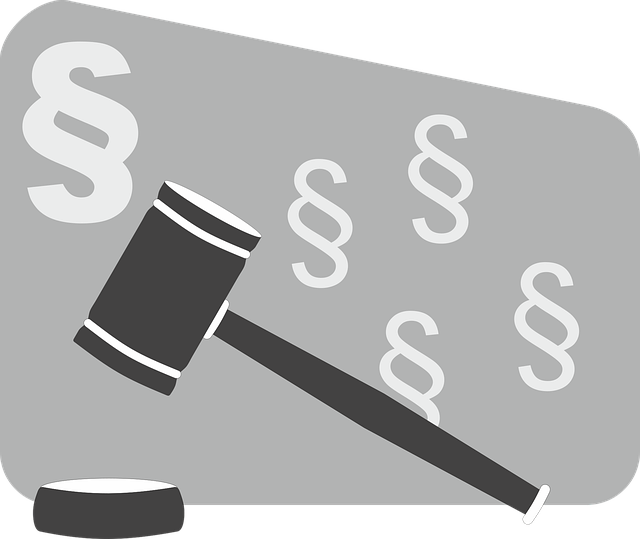Understanding and adhering to global anti-corruption laws, particularly Competition Law Compliance for Startups, is crucial for maintaining ethical integrity in a competitive market. By avoiding bribery, embezzlement, and abuse of power, startups can implement robust internal controls, employee training, and conduct codes to significantly reduce legal risks. Engaging with philanthropic and political communities promotes transparency, fosters accountability, and strengthens compliance, ultimately contributing to a trustworthy economic ecosystem. Proactive measures are key to navigating legal complexities, ensuring success, and steering clear of white-collar cases.
In the dynamic landscape of entrepreneurship, navigating public corruption charges can be a complex and daunting task for startups. This article serves as a comprehensive guide for budding businesses, delving into critical aspects of understanding and mitigating risks associated with public corruption. We explore key concepts like competition law and its pivotal role in anti-corruption efforts. By providing practical best practices for legal compliance, we empower startups to thrive while upholding ethical standards, ensuring sustainable growth in a fair and transparent marketplace.
- Understanding Public Corruption Charges: A Startup's Guide
- Competition Law and Its Role in Anti-Corruption Efforts
- Navigating Legal Compliance for Startups: Best Practices
Understanding Public Corruption Charges: A Startup's Guide

Understanding Public Corruption Charges: A Startup’s Guide
For startups navigating the complex landscape of Competition Law Compliance, understanding public corruption charges is an essential component of their ethical and legal framework. These charges encompass a wide range of activities that undermine fairness and transparency in governance, including bribery, embezzlement, and abuse of power. Recognizing these as potential pitfalls is crucial for fostering integrity within the startup ecosystem. Startups must be vigilant to ensure their operations don’t conflict with anti-corruption laws, which vary across jurisdictions but share common principles aimed at eradicating white collar and economic crimes.
An unprecedented track record of ethical business practices can set startups apart in competitive markets. By proactively integrating robust internal controls, comprehensive training for employees, and clear codes of conduct, companies can mitigate risks associated with public corruption charges. Moreover, startups should actively engage with philanthropic and political communities to promote transparency and accountability, thereby fostering a culture that rejects unethical behaviors and strengthens their compliance posture under Competition Law.
Competition Law and Its Role in Anti-Corruption Efforts

Competition Law Compliance for Startups plays a crucial role in the global fight against public corruption charges. By fostering fair markets and preventing anti-competitive practices, competition laws help to create an environment where integrity and transparency thrive. For startups, navigating Competition Law is not just about avoiding penalties; it’s a strategic move to enhance their credibility and protect their interests in the long run. This is particularly important given the increasing scrutiny on white collar and economic crimes, with many countries adopting stricter measures and unprecedented track records in prosecution.
By adhering to competition law principles, startups demonstrate their commitment to ethical business practices and responsible corporate governance. This proactive approach not only deters potential corrupt behaviors but also fosters trust among stakeholders, including investors, customers, and partners. In a landscape where public corruption remains a significant challenge, startups that prioritize Competition Law Compliance stand out as models of integrity, contributing to a more robust and trustworthy economic ecosystem.
Navigating Legal Compliance for Startups: Best Practices

Navigating legal compliance for startups is a complex task, especially when considering competition law. As businesses venture into uncharted territories, they must ensure their operations adhere to regulations designed to foster fair competition in the marketplace. Startups often face unique challenges due to their innovative nature and rapid growth, making it crucial to implement robust internal controls and policies early on.
Best practices for maintaining Competition Law Compliance for Startups involve staying informed about evolving legal landscapes, conducting thorough market analyses to avoid anti-competitive behaviors, and promoting transparency within the organization. Engaging in proactive measures such as regular employee training on ethical business practices and establishing clear guidelines for decision-making can help startups steer clear of high-stakes cases involving white-collar defense. By adopting these strategies, startups can navigate legal complexities more effectively and build a strong foundation for long-term success across the country.
In the fight against public corruption, startups have a crucial role to play. By understanding the intricacies of public corruption charges and implementing robust competition law compliance strategies, these innovative businesses can contribute to a more transparent and ethical ecosystem. Adhering to best practices in legal compliance not only protects startups from potential pitfalls but also strengthens their position as responsible corporate citizens. Ultimately, navigating Competition Law Compliance for Startups is essential for fostering integrity within the business world and ensuring a level playing field for all.






